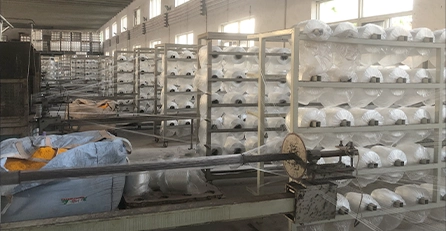Choosing the Right Vacuum Hoses for Your HVAC System Maintenance Needs
Understanding HVAC Vacuum Hoses Essential Components of HVAC Systems
When it comes to HVAC (Heating, Ventilation, and Air Conditioning) systems, many components play a crucial role in ensuring optimal performance. One often-overlooked element is the vacuum hose, which is vital for various HVAC functions including evacuation, testing, and refrigerant recovery. In this article, we will explore the significance of HVAC vacuum hoses, their functions, types, maintenance, and the best practices to ensure your HVAC system runs smoothly.
What are HVAC Vacuum Hoses?
HVAC vacuum hoses are specialized tubes used to connect various components within HVAC systems. These hoses are designed to transport refrigerants, gases, or vapors under vacuum conditions. By maintaining a vacuum, these hoses help in the removal of moisture, air, and other contaminants from the HVAC system before it is charged with refrigerant. This process is critical to maintaining system efficiency and longevity.
Importance of Vacuum Hoses in HVAC Systems
1. Evacuation of Air and Moisture One of the primary functions of a vacuum hose is to evacuate air and moisture from HVAC systems. Any moisture present in the system can lead to significant issues such as corrosion and decreased efficiency. The vacuum hose facilitates the removal of ambient air and moisture, preparing the system for refrigerant charging.
2. Monitoring and Testing Vacuum hoses are also used in pressure testing the HVAC system for leaks. By applying a vacuum and monitoring the pressure, technicians can identify weak points or leaks that might compromise the system’s effectiveness over time.
3. Refrigerant Recovery For maintenance and repair tasks, vacuum hoses are essential in recovering refrigerants. They ensure that refrigerant is safely removed from the system, preventing environmental harm and compliance with regulations regarding refrigerant handling.
Types of Vacuum Hoses
HVAC vacuum hoses come in various materials and designs, suitable for different applications
. Some common types include- Rubber Vacuum Hoses Known for their flexibility and durability, rubber hoses are often used in residential HVAC systems. They can withstand temperature variations and are suitable for both liquid and gas applications.
hvac vacuum hoses

- Plastic Vacuum Hoses These are lightweight and resistant to corrosion, making them a preferred choice for specific applications within HVAC systems. They are often used in low-pressure settings.
- Metal Vacuum Hoses Stainless steel vacuum hoses are highly durable and suitable for high-pressure applications. They are often used in commercial HVAC systems where durability and resistance to extreme conditions are necessary.
Maintenance and Best Practices
To ensure the longevity and efficiency of HVAC vacuum hoses, proper maintenance is crucial. Here are some best practices
1. Regular Inspections Inspect vacuum hoses regularly for signs of wear and tear, such as cracks, frays, or bulges. Replace any damaged hoses immediately to prevent air leaks.
2. Correct Connections Ensure that all connections are tight and secured properly. Loose connections can lead to air leaks, which negate the effectiveness of the vacuum process.
3. Cleanliness Matters Always ensure the hoses are clean and free from debris before connecting them to HVAC systems. Contaminants can enter the system, leading to damage and inefficiencies.
4. Avoid Kinks and Bends Avoid bending or kinking the hoses during use, as this can restrict airflow and create pressure points that can lead to premature wear or rupture.
5. Use Approved Hoses Always use vacuum hoses that are rated for HVAC applications. Using substandard hoses can be hazardous and may compromise system performance.
Conclusion
HVAC vacuum hoses are integral to the functionality and efficiency of HVAC systems. By understanding their importance, types, and maintenance practices, HVAC professionals can ensure that their systems operate smoothly and effectively. As technology advances, the materials and designs of these hoses continue to evolve, but their fundamental role in the HVAC process remains indispensable. Whether you are a technician or a homeowner, recognizing the significance of vacuum hoses can lead to better system performance and longevity.
-
Top Quality Oxy Acetylene Hoses for Sale Fit for Welding DemandsNewsJul.28,2025
-
The Future of Pneumatic Air Tubes in IndustryNewsJul.28,2025
-
Superior and Reliable LPG Hose Pipe Solutions for Every NeedNewsJul.28,2025
-
Exceptionally Durable and Versatile Premium Braided PVC TubingNewsJul.28,2025
-
Best Adapters for Connecting Garden Hose to PVC Pipe ConnectionsNewsJul.28,2025
-
The Essential Role of LPG Hoses in Safe and Efficient Gas DistributionNewsJul.16,2025














